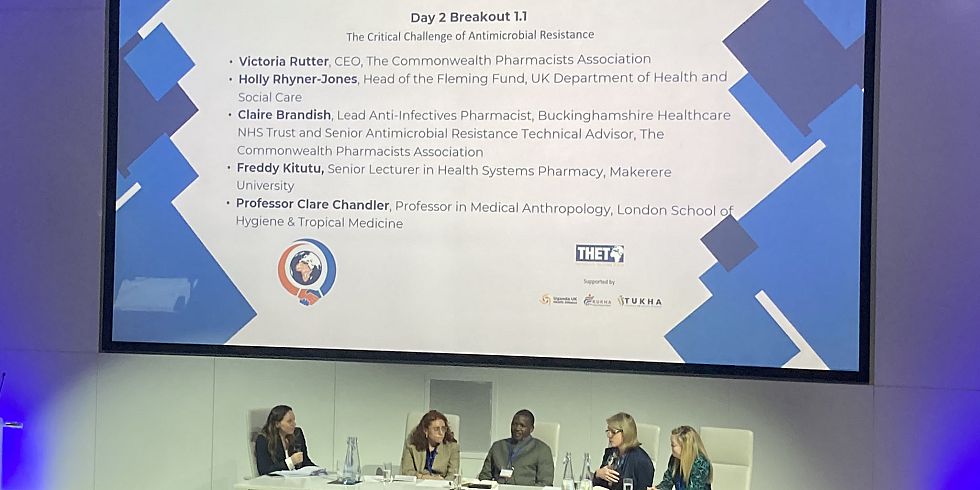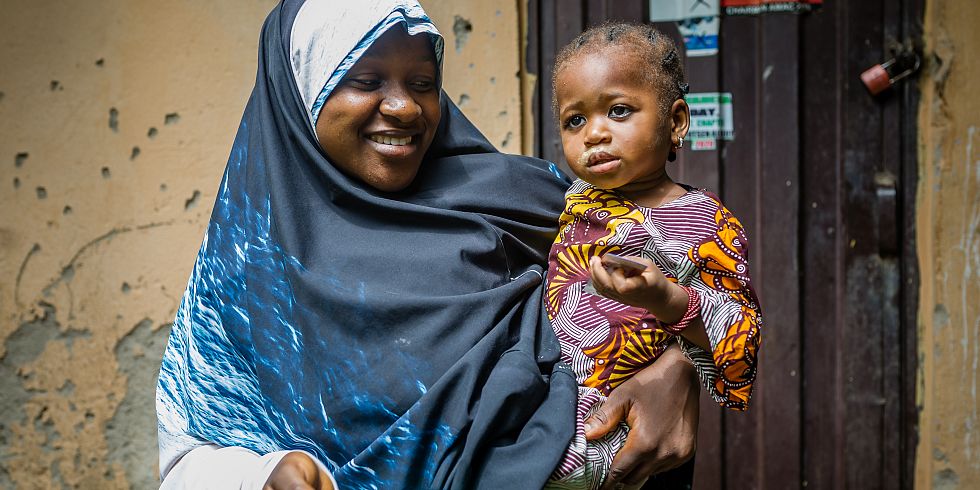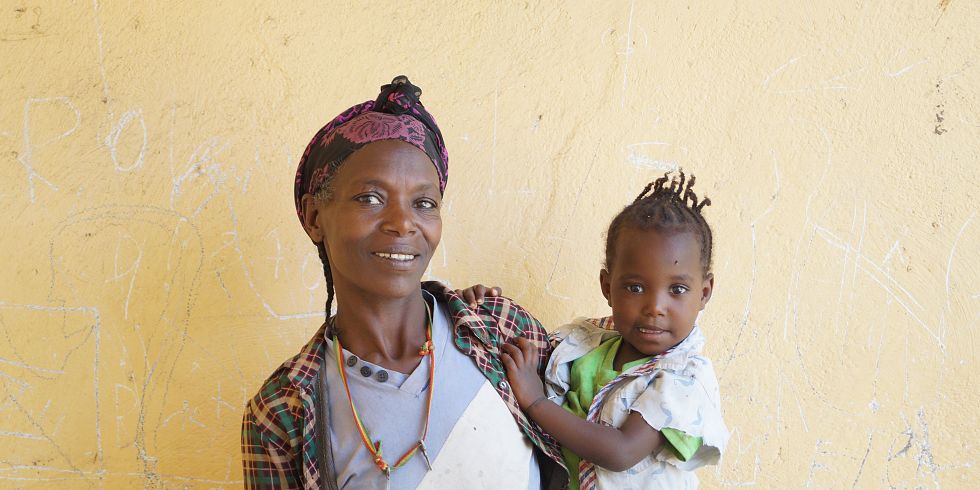Latest News
65 Result(s) found:
Reset all search optionsCurrent search filters ( results match ALL terms):Community delivery

Malaria Consortium honoured by Ugandan government for contribution to combat malaria
23 April 2024Malaria Consortium has been honoured for its groundbreaking efforts in malaria prevention, both within Uganda and internationally, at the annual World Malaria Day Scientific Colloquium 2024.
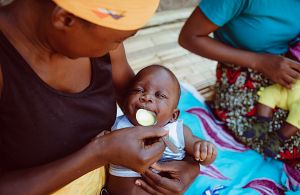
Malaria Consortium and eGov Foundation join Mozambique’s national malaria programme to digitalise seasonal malaria chemoprevention campaigns
8 February 2024In a new collaboration, Malaria Consortium and eGov Foundation will support Mozambique’s National Malaria Control Programme (NMCP) to roll out a new digital tool to accelerate the digitalisation of seasonal malaria chemoprevention (SMC) campaigns.
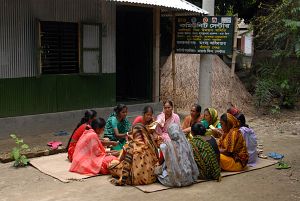
Antimicrobial resistance: Tailored storytelling is key to successful community interventions
24 November 2023In a comment piece published in BMC Research Notes and written on behalf of CE4AMR (Community Engagement for Antimicrobial Resistance) network, a team of collaborators from organisations including Malaria Consortium presents seven…
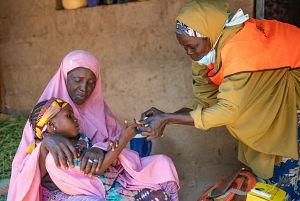
UN High level meeting puts spotlight on essential investments for universal health coverage
21 September 2023Today in New York during the United Nation (UN)’s 78th General Assembly, a High-level meeting (UN HLM) on universal health coverage (UHC) convened nations and stakeholders with a shared vision for reinvigorating progress tow…
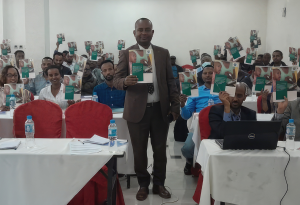
Ethiopia marks another milestone in its pneumonia and diarrhoea reduction plans
13 June 2023Earlier this month, an action plan to strengthen strategies for child survival, focused on the integrated management of childhood illnesses (IMNCI), was launched in Ethiopia, at an event attended by representatives from the region…
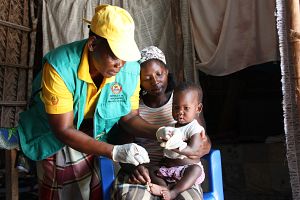
Community health workers are saving costs of care for the three major childhood illnesses in Mozambique and Uganda
7 October 2022New research from Mozambique and Uganda has shown that effectively trained community health workers (CHWs) can reduce treatment costs for malaria and pneumonia among children under five in rural areas of the countries. The finding…
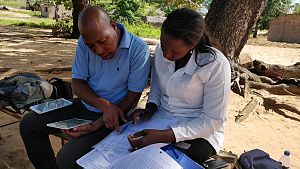
Assessing the effectiveness of a community digital health platform in Mozambique
26 July 2022In a new learning paper published today, Malaria Consortium reviews the effectiveness of upSCALE, a community digital health platform implemented in Mozambique. Over a four-year period, upSCALE proved to be a supportive, agile pla…
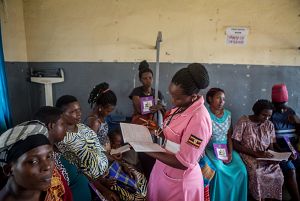
New project to boost malaria burden reduction gains in Uganda
26 January 2022To build on and boost gains made in Uganda’s mission to eradicate malaria, Malaria Consortium is implementing a new project – Supporting Uganda’s Malaria Reduction and Elimination Strategy (SUMRES) – over t…
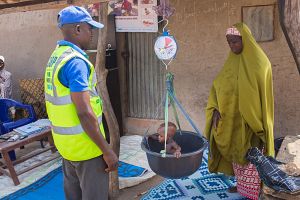
Non-medical health workers use simplified tools to treat malnutrition in children under five in rural Nigeria
5 January 2022Community health workers in rural Nigeria without formal medical education can successfully identify, treat and refer cases of malnutrition in children under five when using simplified tools and having received training, a study c…
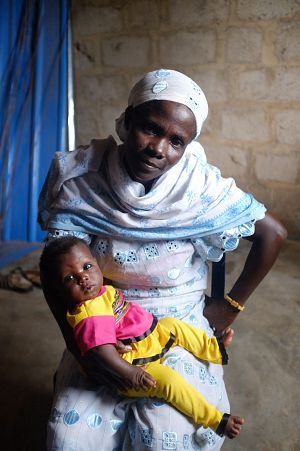
Malaria Consortium begins distribution of over seven million LLINs in Nigeria
8 December 2021Malaria Consortium has today begun the mass distribution of over seven million long-lasting insecticide treated nets (LLINs) to help reduce the burden of malaria in Nigeria. Two LLIN campaigns will distribute 3.3 million LLINs to …
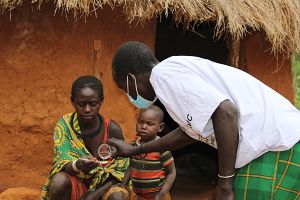
World Malaria Report 2021: Maintaining essential services has saved lives but malaria cases continue to rise
6 December 2021Today, the World Health Organization (WHO) published its World Malaria Report for 2021, assessing global and regional malaria trends over the last year and providing an opportunity to reflect on progress towards global targets.
T…
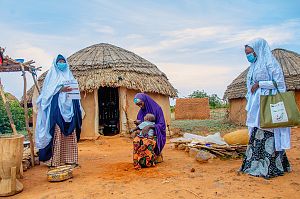
Exciting potential for increased protection against malaria for young children in combining malaria vaccine with seasonal malaria chemoprevention
27 August 2021A seminal paper, published on 25 August in the New England Journal of Medicine, details results from a three-year trial to test the efficacy of the RTS,S/AS01 E malaria vaccine in combi…
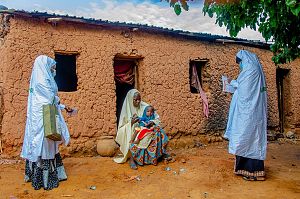
Malaria Consortium to support Nigeria’s National Malaria Elimination Programme to reduce malaria burden to pre-elimination by 2025
18 August 2021Malaria Consortium is supporting Nigeria’s National Malaria Elimination Programme to deliver malaria interventions to help the country reach its goal of reducing the malaria burden to pre-elimination levels by 2025 - equatin…
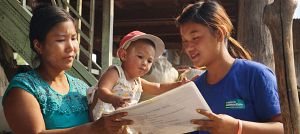
Malaria Week 2020 – Why integration could be the key to elimination
7 September 2020Hosted by the Government of Vietnam, Malaria Week 2020 (7-11 September) brings together government officials and diverse partners to drive forward the elimination of malaria from Asia Pacific by 2030.
This year’s theme cent…
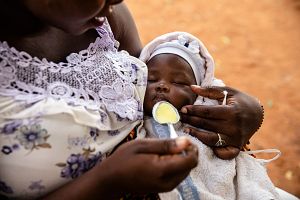
Malaria Consortium delivers life-saving antimalarial drugs across West Africa
16 July 2020The first treatment cycle of the 2020 seasonal malaria chemoprevention (SMC) campaign is underway and Malaria Consortium is on course to reach 12 million children in Burkina Faso, Chad and Nigeria.
The life-saving intervention is…
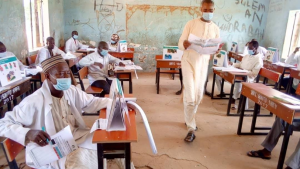
12 million children set to receive life-saving seasonal malaria chemoprevention
3 July 2020Malaria Consortium is ensuring that around 12 million children under five will receive life-saving protection from malaria despite the COVID-19 pandemic as it prepares to deliver its seasonal malaria chemoprevention (SMC) programm…
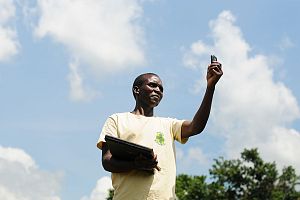
Digital health at the forefront of the community response in Mozambique amidst COVID-19 pandemic
23 June 2020Malaria Consortium is rapidly adapting its existing digital platform, upSCALE, to better support health workers’ ability to respond to the COVID-19 pandemic in Mozambique. The changes include a dedicated education module, ta…

Malaria Consortium outlines nine key approaches to help mitigate climate-related threats to health
5 June 2020Malaria Consortium is pleased to announce the publication of an opinion paper exploring the impact climate change could have on global health.
This paper, Adapting to minimise the health impacts of climatic change, outlines some …
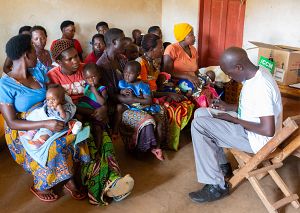
Integrated Community Case Management (iCCM) and COVID-19
11 May 2020Protecting the world's most vulnerable people is crucial during the COVID-19 pandemic. The delivery of life saving health services must not be interrupted however, especially at community level, if we are to avoid an increase in d…
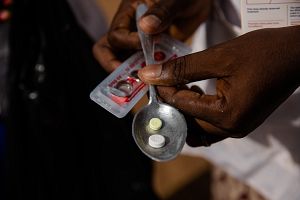
Guidance document published on implementing seasonal malaria chemoprevention during the COVID-19 pandemic
30 April 2020Malaria Consortium is pleased to announce the publication of a global operational guidance document on implementing seasonal malaria chemoprevention (SMC) in the context of COVID-19. The guide, which is available in English and Fr…
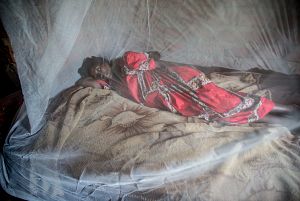
New animated film outlines the threat of malaria in pregnancy – and how to combat it
23 April 2020Malaria Consortium is delighted to announce the publication of a brand new animated film on malaria in pregnancy. The film highlights the dangers of malaria in pregnancy, and what needs to be done to protect pregnant women from th…
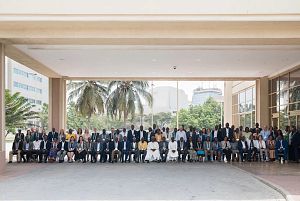
Seasonal malaria chemoprevention set to reach more than 30 million children for the first time
4 March 2020The number of children set to receive seasonal malaria chemoprevention in 2020 will exceed 30 million for the first time, according to the latest figures presented by national malaria programmes at a global planning and review mee…
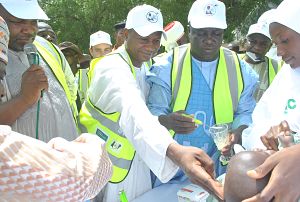
Malaria Consortium launches ‘top-rated’ malaria prevention campaign in Africa’s Sahel
30 July 2019London, 30 July 2019 – Malaria Consortium’s seasonal malaria chemoprevention campaign has begun across three countries in the Sahel region of Africa.
Over the next four months, the campaign will distribute preventive …
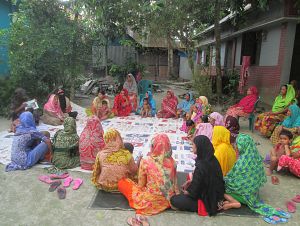
Malaria Consortium shares new film on tackling antimicrobial resistance in Bangladesh
1 July 2019London, 1 July 2019 – Malaria Consortium premiered its new film last week on tackling antimicrobial resistance in Bangladesh.
The film focuses on the use of the Community Dialogue Approach in order to engage rural communiti…

Vote for Malaria Consortium in the 2018 Charity Film Awards
6 November 2018A film documenting Malaria Consortium’s iCCM-MaCS project in southern Uganda has been nominated in the Charity Film Awards. It is the latest in a line of Malaria Consortium films to be submitted to the awards, and unde…

Fighting antibiotic resistance in Bangladesh
18 May 2018A new project starting in Bangladesh will help combat the growing global threat of antibiotic resistance. The new study will develop, adapt and pilot-test the comm…
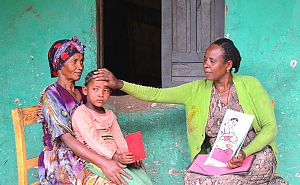
Investing in Social and Behaviour Change Communication (SBCC) in the fight against malaria
17 August 2017For people living in Ethiopia, where malaria is endemic, long-lasting insecticidal nets (LLINs) are an important tool for preventing malaria. LLINs, like diagnosis and treatment for malaria in public health facilities, are provide…
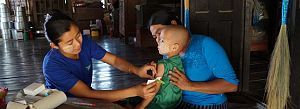
Remote, rural populations in Myanmar receive improved healthcare
4 August 2017Malaria Consortium announced the results from its project introducing integrated community case management (iCCM), which includes diagnosis and treatment of malaria, diarrhoea, pneumonia and malnutrition at a dissemination event t…
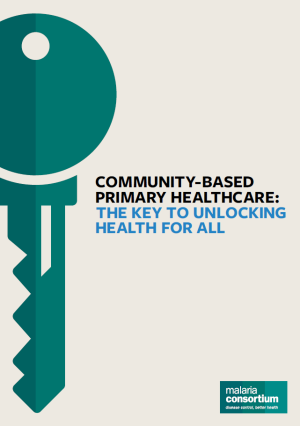
Community-based Primary Healthcare: the key to unlocking health for all
2 August 2017Community-based primary healthcare has potential for delivering health services to hard-to-reach and under-served communities, and for achieving the Global Goals on health, says a new report published by Malaria Consortium
Despit…
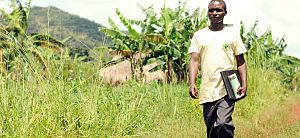
Help us improve access to healthcare in eastern Uganda
23 September 2016[{dx-module-home_justgiving}] When your child is sick from a fever, vomiting or suffering from dehydration from constant diarrhoea, you need to seek urgent medical help. If you live in a rural area with no transport, you need that…

Creating community dialogue to combat malaria
29 July 2016Malaria is one of the most significant health threats in Ethiopia where, in spite of available preventive measures, many people remain unsure of the ways to protect themselves from the threat of this disease. Thanks to Malaria Con…
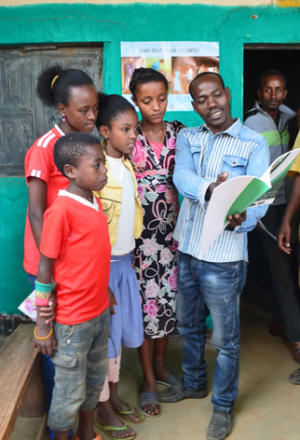
School children spread the word about malaria prevention
29 July 2016Malaria is one of the leading causes of sickness and death for children under five in Ethiopia, with the disease particularly prevalent in the Southern Nations, Nationalities and Peoples Region (SNNPR). In this region, in spi…
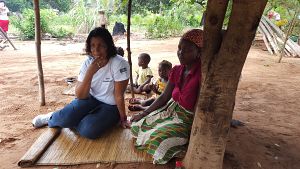
Photo story: bringing healthcare to under-fives in rural Mozambique
7 July 2016Mozambique still faces major challenges in reducing maternal and child morbidity and mortality, despite making significant progress over the past decade. Because so many children live beyond the periphery of the health system, pri…

Photo story: Innovations for dengue control in Cambodia
1 July 2016In March 2016 Malaria Consortium Advocacy Manager Alex Hulme visited Cambodia to collect a case study of our "integrated vector management for dengue control in Cambodia" project. Whilst there, he spoke with community health volun…
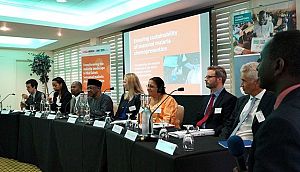
Symposium on innovative malaria prevention method held in London
1 July 2016On 9th June, Malaria Consortium ran a symposium in London entitled Transforming the malaria landscape in the Sahel: Seasonal malaria chemoprevention.
In the Sahel region of sub-Saharan Africa, the risk of malaria increases w…
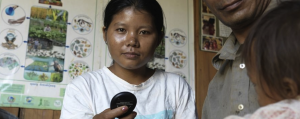
Pneumonia Diagnostics Project shares results at dissemination meetings in Cambodia
5 May 2016On March 15, 2016, Malaria Consortium hosted a workshop in Phnom Penh, Cambodia, to disseminate the preliminary results of our multi-country pneumonia diagnostics research project. The research aims to identify the most accurate a…
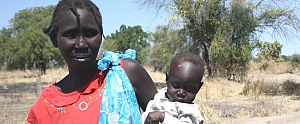
Linking nutrition to the treatment of children with malaria, pneumonia and diarrhoea
25 April 2016In South Sudan, Malaria Consortium saves lives by preventing and treating malaria, pneumonia, diarrhoea and undernutrition
The approach
Since 2009, Malaria Consortium has been implementing a programme for the integrated communi…
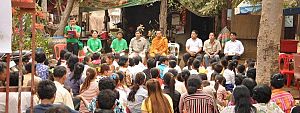
Positive deviance approach helps reduce malaria cases in Asia
14 March 2016Malaria Consortium has recently published a paper in Malaria Journal which describes our experiences carrying out an innovative approach to malaria control in Cambodia. Originally used to improve nutrition outcomes in the 1970s, &…
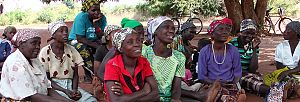
Provincial coordinators in Mozambique learn about social mobilisation for neglected tropical diseases
11 March 2016Neglected tropical diseases (NTDs) are a group of 17 infectious diseases that can be devastating to those they affect – mainly people in poor and remote communities with limited access to healthcare. Many NTDs can be managed…
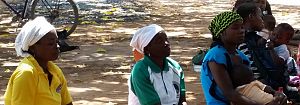
COMDIS-HSD annual review highlights 2015 achievements
19 January 2016COMDIS-HSD, a Research Programme Consortium (RPC), which conducts operational research to improve health service delivery for underserved populations, released its annual review today. The review highlights the RPC’s achieve…
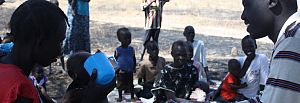
Universal health coverage: Leaving no one behind
15 December 2015An estimated 400 million people across the world do not have access to essential basic health services and every year, 100 million of these people fall into poverty as they struggle to pay for healthcare.
Malaria is one of the le…

Health for all: putting the last mile first
10 December 2015Universal health coverage (UHC) means that every person, everywhere, has access to quality health services without suffering financial hardship.
As we celebrate universal health coverage day and advocate for health services to be…

VIDEO: Filling the gap with community health workers (Politics Home)
9 December 2015This article was originally published on Politics home.
What is the role of policy makers in filling the global healthcare shortage?
There is a global shortage of 7.2 million health workers worldwide – and this…

Malaria Consortium presents at the 2015 Joint International Tropical Medicine Meeting
3 December 2015Malaria Consortium staff are presenting at the Joint International Tropical Medicine Meeting 2015 (JITMM 2015) from December 2-4. The annual conference, held in Bangkok, Thailand, brings together researchers, policymakers, practit…

Malaria Consortium presents at the 2015 ASTMH Annual Meeting in Philadelphia
26 October 2015This week, Malaria Consortium is presenting at the 64th annual meeting of American Society of Tropical Medicine & Hygiene (ASTMH) in Philadelphia. Our symposiums and interactive presentations will cover a number of topics rang…
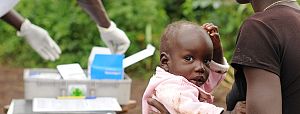
Uganda sees huge scale-up of intervention targeting three main childhood diseases
25 August 2015Sheema, Uganda, 25 August 2015 – Today, the Ugandan President Gen. Yoweri Kaguta Museveni launched a new Integrated Community Case Management (iCCM) programme funded by the Global Fund to Fight AIDS, Tuberculosis and Malaria…

World Malaria Day around the world - in pictures
30 April 2015World Malaria Day is an international event that brings people together from around the globe to unite in the fight against malaria. Malaria Consortium has offices in Africa and Asia which commemorate April 25th by holding a varie…

The people behind Operation Health
8 April 2015Operation Health – Comic Relief’s initiative to refurbish a health facility with support from Malaria Consortium – has had widespread participation from the local community in Iyolwa, eastern Uganda. Check o…
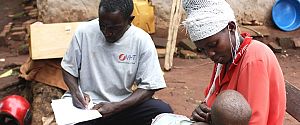
New Malaria Consortium project will expand access to iCCM services across mid-western Uganda
16 March 2015Malaria Consortium is pleased to announce that Comic Relief has awarded us a grant to run a new project in midwestern Uganda focusing on reducing deaths from pneumonia, diarrhoea and malaria in children under five, as well as…
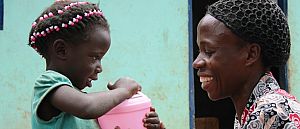
Ugandan Pioneer Project unveils achievements and charts the way forward
26 February 201525 February – With 100 percent of its population at risk of malaria and 15,632 deaths from malaria occurring last year, Uganda faces many challenges. Chief among these are high malaria transmission, key health system challen…

Pioneer Project - in pictures
25 February 2015Malaria Consortium’s Pioneer project was a five-year initiative in Uganda that reduced the malaria burden in the country using a variety of effective methods. Take a look at the gallery below to learn more about t…

New paper highlights the role of the commercial sector in net coverage
16 December 2014Malaria Consortium is pleased to release a new Learning Paper on developing a long lasting insecticidal net retail (LLIN) market in Nigeria, highlighting how the commercial sector can help to expand the coverage of nets in Nigeria…

Diagnosing pneumonia - determining the best tools for use in community settings
19 November 2014In early November, Malaria Consortium held a highly successful symposium on access to better diagnostic tools for pneumonia. Held at the annual American Society of Tropical Medicine and Hygiene (ASTMH) meeting in New Orleans, the …
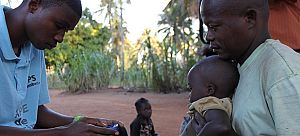
Malaria Consortium says every breath counts in its fight against pneumonia
12 November 2014London, 12 November 2014 - On this sixth annual World Pneumonia Day, Malaria Consortium and its partners are organising different events throughout the world to raise awareness on pneumonia, the biggest killer of children under th…
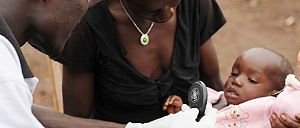
Pneumonia prevention and care available for every child is key to defeat world's #1 infectious killer of children
11 November 2014Global Coalition Against Child Pneumonia Press Release
Pneumonia prevention and care available for every child is key to defeat world’s #1 infectious killer of childrenOn the sixth annual World Pneumonia Day, the Global…

Malaria Consortium at ASTMH
28 October 2014Malaria Consortium at the American Society of Tropical Medicine and Hygiene meeting in New Orleans, November 3 - 6
Malaria Consortium will be giving a number of presentations at the 63rd annual American Society of Tropical Medici…
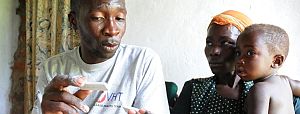
Delivering health services to children through integrated community case management in Uganda
23 October 2014Malaria Consortium is pleased to announce that Agnes Nanyonjo, Research Officer in our Uganda office, has completed her doctoral thesis on 'Delivering health services to children through integrated community case management in Uga…

Malaria Consortium presents at the Third Global Symposium on Health Systems
3 October 2014Malaria Consortium was well represented at this week’s Third Global Symposium on Health Systems Research in Cape Town, which ran from 30 September until 3 October 2014. The conference was attended by 1,700 researchers,…
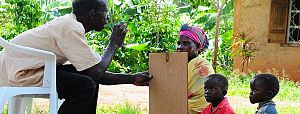
InSCALE: Advocating for increased iCCM coverage in Uganda
23 September 2014Three quarters of deaths in children under five are caused by malaria, diarrhoea and pneumonia often because access to quality health care is hardest in areas where the need is greatest. Uganda has one of the highest infant mortal…

Community dialogues in Zambia - in pictures
2 September 2014The success of health interventions hinges on the involvement of affected communities. One method of encouraging engagement is through community dialogues, which gather villagers to discuss and find local solutions to health chall…
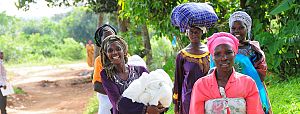
Historic campaign delivers mosquito nets to every household across Uganda
18 August 2014A universal LLIN campaign to distribute 21 million nets across Uganda reached completion this weekend and was marked at an event in Kampala.
The first distribution of its kind in Uganda, the 16 month campaign represents a signifi…
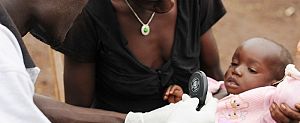
Meetings in Geneva seek to address challenges in the detection of the symptoms of pneumonia
21 July 2014Recently, Malaria Consortium hosted a series of meetings in Geneva, bringing together global experts in child health, community case management, and diagnostics. During the meetings, the experts discussed the current global situat…
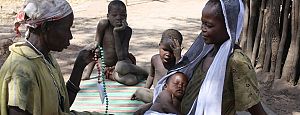
Improving pneumonia diagnostics through the use of counting beads
15 July 2014Pneumonia is the leading cause of death in children worldwide. Every year it kills an estimated 1.2 million young children, accounting for approximately 18 percent of all deaths in this age group – more than AIDS, malaria an…
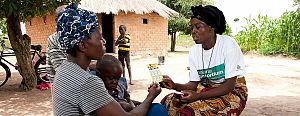
Getting research evidence into health policy and practice - let's talk
14 July 2014With the support of many health-related journal editors, BioMed Central hosted the inaugural ‘Health Services Research: Evidence-based practice’ conference in London from 1-3 July, bringing together distinguished leade…
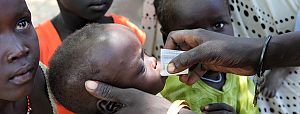
South Sudan faces growing public health crisis
9 July 2014On the third anniversary of South Sudan’s independence, the humanitarian situation remains critical for the country and it is on the brink of famine and facing a public health crisis.
The UN secretary-general, Ban Ki-moon&r…

